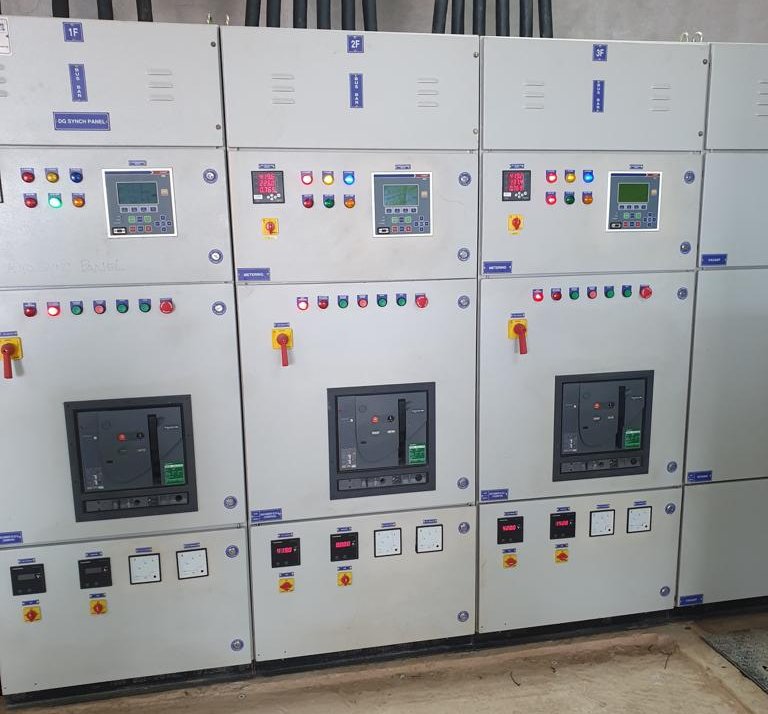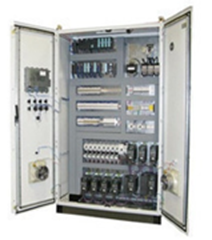
Programmable Logic Controllers (PLCs) are small industrial computers with modular components designed to automate customized control processes. PLCs are often used in factories and industrial plants to control motors, pumps, lights, fans, circuit breakers and other machinery. Integrated PLC Panel can monitor any process and provide data wherever and however you need it.
There are many components to a PLC, but most of them can be put in the following three categories:
• Processor (CPU)
• Inputs
• Outputs
PLCs are complex and powerful computers; it takes inputs, performs logic on the inputs in the CPU and then turns on or off outputs based on that logic. We can take the following case for example:
For Selecting Modular Processors the most important criteria would be the number of I/O points. Each PLC processor will only be capable of working with a limited number of I/O modules
Another important criteria for selecting processors is Memory size (for data storage or program storage) and Performance (scan time depends on the processor). The size of program is dependent upon the complexity of the control problem and the skill and style of the programmer.
A PLC with an appropriate memory size and speed needs to be selected based on the application.
Purge and Pressurized panels
Flameproof and Explosion Proof Panels
SIL Safety PLC systems
Distributed Control Systems
IEC 61439 Type Tested Assembly panels

| Total Number of Points: | Number of points is the sum of the inputs and the outputs. PLCs may be specified by any possible combination |
|---|---|
| PLC I/O: | Input/output signals the PLC can accept/Provide |
| Scan Time: | Time required by the PLC to check the states of its inputs and outputs. |
| Data Memory: | Capacity for data storage |
| Program Memory: | Capacity of memory for control software |
| PLC Programming Language: | Ladder Diagram, Structured Text, Relay Ladder Logic, etc |